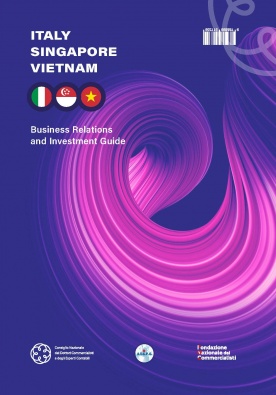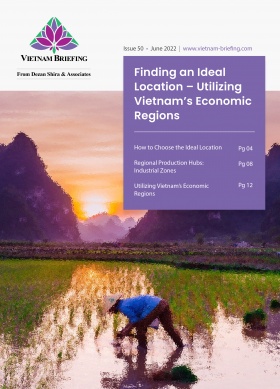Adani and Vietnam: An Overview
India’s Adani Group has been in the news in recent weeks after concerns were raised about its business practices. With investments all over the world, including Vietnam, this could have far reaching consequences. Here we briefly discuss Adani’s projects in Vietnam as well as India’s expanding investment ties to the region.
India’s Adani Group’s value plummeted last month after US activist short-selling firm Hindenburg Research released a report alleging that the company had engaged in market manipulation.
The company has denied the claims, but its stocks have suffered regardless. On Wednesday, the market value of the Adani Group was down US$100 billion.
In response, a number of measures are being explored to shore up the embattled company. This includes cutting spending and repaying debt.
With business interests throughout Asia, these measures could impact several of Adani’s projects in the region, including in Vietnam.
Adani’s relationship with Vietnam
Vietnam has for some time courted investment from the Adani Group.
In September of 2021, for example, Gautam Adani met with the Vietnamese Ambassador to India, Pham Sanh Chau, to discuss building a thermal power plant in the Southeast Asian nation.
This was followed up with a meeting between the CEO of Adani Port and Special Economic Zone (APSEZ), Karan Adani, in October of the same year.
This then extended into an announcement that Adani intended to invest US$10 billion in projects in Vietnam (see below); and then, in November of last year, the Chairman of Adani Group, Saurin Dilipbhai Shah, was appointed Vietnam’s Honorary Consul in Gujarat, India.
Needless to say, Vietnam has been keen to draw investment from the Adani Group. That said, to date investment from Indian firms in the country has been relatively limited.
Adani’s two projects in Vietnam
The Adani Group has currently invested in two projects in Vietnam, both in the renewable energy sector. These are the Adani Phuoc Minh Wind Power Plant and the Adani Phuoc Minh Solar Power Plant.
Adani Phuoc Minh Wind Power Plant
The Adani Phuoc Minh Wind Power Plant was approved in 2018. Construction on the site began in 2020 and it went into commercial operation in October 2021.
The plant, in Ninh Thuan, has a capacity of 27.3 megawatts (MW) and is a joint venture between Adani and Vietnam’s TSV Joint Stock Company. Adani holds 80 percent chartered capital in the operation and TSV, the remaining 20 percent.
Adani Phuoc Minh Solar Power Plant
The Adani Solar Power Plant, also in Vietnam’s Ninh Thuan province, was commissioned in 2020 and is currently operational. It has a capacity of 50MW and is also a joint venture with Vietnam’s TSV.
Challenges facing Adani’s renewable energy projects in Vietnam
Adani’s two power projects in Vietnam, however, have met some challenges. In particular, a lack of sufficient power grid infrastructure has made it difficult for the firm’s two plants to run at capacity.
As recently as December, China Dialogue reported that Adani’s solar plant was required to cut its output by 20 percent and its wind farm was required to cut its output by 50 percent each month to ensure the grid did not get overloaded.
This is an ongoing problem with power companies throughout Ninh Thuan and no clear resolution has yet been reached.
Adani’s future projects in Vietnam
In June of 2022, Adani announced that it would invest a further US$10 billion in projects around Vietnam. Specifically, Adani’s APSEZ highlighted the Lien Chieu Port project in Danang as one of a range of projects it intended to invest in.
For its part, Vietnam broke ground on the US$145 million project in December of last year and construction is now underway. However, to date, there have been no further announcements on what form Adani’s investment might take.
On that note, on Wednesday, India’s The Economic Times reported that Adani’s APSEZ would be paying back US$604.6 million in debt to ease investor concerns. It also said that, in the next financial year, APSEZ intends to halve its capital expenditure, though it is yet to advise where those cuts might be made.
India-Vietnam FDI
While Vietnam and India are competing for FDI from foreign firms across several fronts, investment between the two densely populated nations has been steadily on the rise.
As of 2021, India had 313 projects in Vietnam with total registered capital in the vicinity of US$910 million. Vietnam, on the other hand, had six projects in India with a total investment of US$28.55 million, according to the Embassy of India in Hanoi.
Vietnam’s six projects were primarily in the areas of pharmaceuticals, information technology, chemicals and building materials.
As of January 2023, India’s total number of projects in Vietnam had risen to 349 with total registered capital of just over US$1 billion. These projects were in a broad range of fields including energy, mineral exploration, agro-processing, sugar, tea, coffee manufacturing, agro-chemicals, IT, and auto components.
This number could rise substantially if Adani’s US$10 billion plan is realized, however, Adani’s current woes have the potential to derail its ambitions in Vietnam.
With offices in both India and Vietnam, Dezan Shira and Associates is well positioned to assist in cross border investments.
About Us
Vietnam Briefing is published by Asia Briefing, a subsidiary of Dezan Shira & Associates. We produce material for foreign investors throughout Eurasia, including ASEAN, China, India, Indonesia, Russia & the Silk Road. For editorial matters please contact us here and for a complimentary subscription to our products, please click here.
Dezan Shira & Associates provide business intelligence, due diligence, legal, tax and advisory services throughout the Vietnam and the Asian region. We maintain offices in Hanoi and Ho Chi Minh City, as well as throughout China, South-East Asia, India, and Russia. For assistance with investments into Vietnam please contact us at vietnam@dezshira.com or visit us at www.dezshira.com
- Previous Article Where are Samsung’s Factories in Vietnam?
- Next Article 8 Regulations and Policies Supporting Startups in Vietnam










